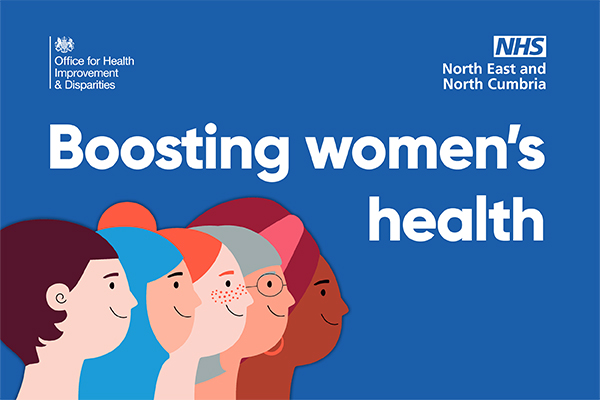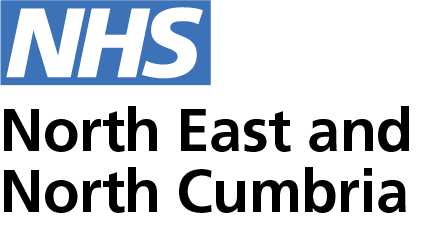Boosting women's health in the region

Women’s health is in the spotlight as work is underway to bolster the efforts in tackling women’s health across the region.
Data from the Office for Health Improvement and Disparities shows that in the North East and North Cumbria:
- women are less likely to report good health than women in England overall.
- the leading cause of death women of all ages is cancer.
- women from more deprived areas are less likely to access HRT.
These are just some of the issues being highlighted at the North East Women’s Health Conference 2023. Co-hosted by the North East and North Cumbria Integrated Care System (ICB) and the Office of Health Improvement and Disparities, the event will follow the priorities laid out in the national Women’s Health Strategy for England to develop a regional women’s health strategy and implementation plan for the North East and North Cumbria.
The first ever Women’s Health Strategy for England, launched just over a year ago, marks a reset in the way in which the government looks at women’s health. It sets out the national 10-year ambition for boosting the health and wellbeing of women and girls, and for improving how the health and care system engages and listens to all women and girls.
Speaking at the event, Dame Lesley Regan, Women’s Health Ambassador for England and lead for the national strategy, said: "The first ever government-led Women’s Health Strategy was born from a need to level up and ensure the health service – which has historically been designed by men, for men – is delivering for the 51% of the population who are women.
"One year on over 400,000 women are now accessing cheaper HRT prescriptions and the government is investing £25 million in women’s health hubs as well as the NHS website having a dedicated women’s area.
"But it’s not just about putting women’s needs on an equal footing with men’s, it’s also about making ensure there is equal access for women up and down the country. I’m delighted to see the North East and North Cumbria Integrated Care System bring people together from across the region to share best practice and develop its own implementation plan for the Women’s Health Strategy. This is a positive step that will see real benefit to women on the ground.”
Samantha Allen, chief executive, North East and North Cumbria ICB, said: “There’s already so much great work happening across the region to improve women’s health and access to services, and with that comes so much learning so we can improve the way we join up care for women and girls of all ages.
“This conference provides the opportunity to share much of this work and the insights gained, and also to highlight the inequalities faced by women and particularly women who are in vulnerable and hard-to-reach groups.”
“This is the start of bringing all of this work together, identifying gaps we have, and taking forward the Women’s Health Strategy and Implementation Plan for the North East and North Cumbria and make health services in the region better for women.”
Dr Claire Sullivan, deputy director for health, wellbeing and workforce (North East), Office for Health and Disparities, said: “A new women's health profile will be launched at the conference to provide valuable insight for those working to address women's health issues. This tool gives valuable data at local authority and deprivation level.
"The data shows a clear correlation between poorer health outcomes and economic and social deprivation, for example, we are seeing wide inequalities in access to HRT, with the least deprived areas reporting almost double the number of women accessing HRT compared to more disadvantaged areas.”
The conference will showcase a number of key projects focussed on improving women’s health:
Menopause
The demand for perimenopause and menopause advice and treatment has risen exponentially for primary care and they have had to look at evolving their services as well as innovative ways to help meet this demand. Working with their local UNISON branch, Newcastle City Council surveyed employees to get a better understanding of the impact of perimenopause and menopause affected them in the workplace, to inform and build on existing support for women.
Working with local businesses, Hartlepool & Stockton Health, trialed ‘menopause drop-in cafes’ where women can drop-in and talk openly in a relaxed and safe setting. This easily accessible environment allowed their voices to be heard and they were given resources and information about menopause with the aim of preparing a woman for potential next steps.
Cancers
The Northern Cancer Alliance (NCA) have been working to develop a new pathway for women with breast pain. Breast pain alone is not a symptom of cancer however women who do experience breast pain will often have concerns that the pain could be linked to cancer. Previously women with breast pain would have been referred into a clinic for assessment alongside women with symptoms suspicious of cancer (a lump etc), raising anxiety for them.
Fertility, pregnancy, pregnancy loss and post-natal support
The Orthodox Jewish community have historically not presented locally for fertility investigations, due to perceived barriers to communication and a lack of understanding of the requirements of their faith. The Gateshead Fertility Unit worked with local Jewish community leaders to develop an adapted pathway for fertility treatments in line with Halachah Jewish law, including supportive patient information and staff education.
Further themes include health impacts of violence against women and girls; healthy ageing and long-term conditions; menstrual health and gynaecological conditions; cancers, and mental health and wellbeing.
The North East and North Cumbria Women’s Health Conference 2023 will be held on Thursday 19 October at The Stadium of Light, Sunderland.
